
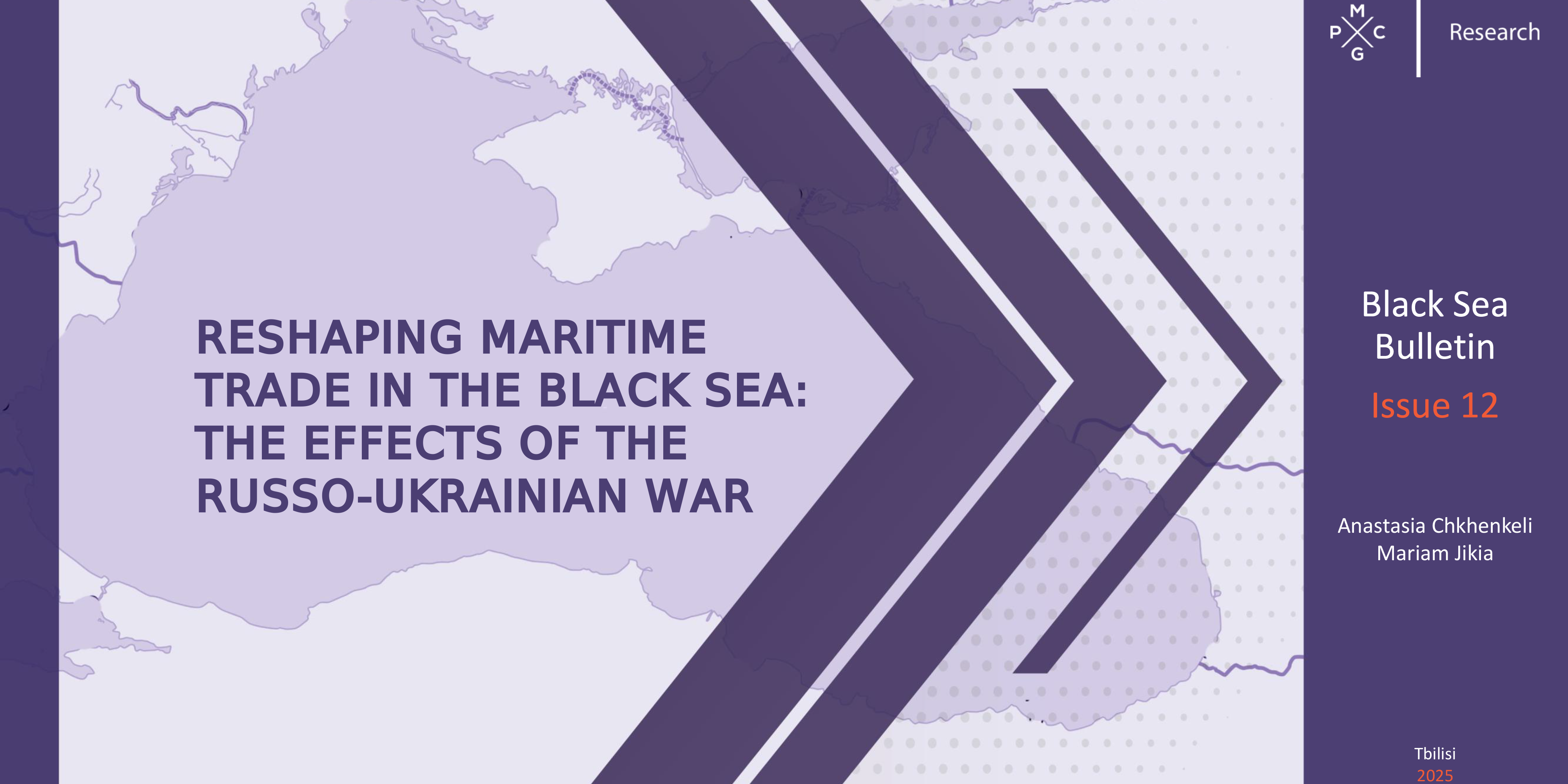








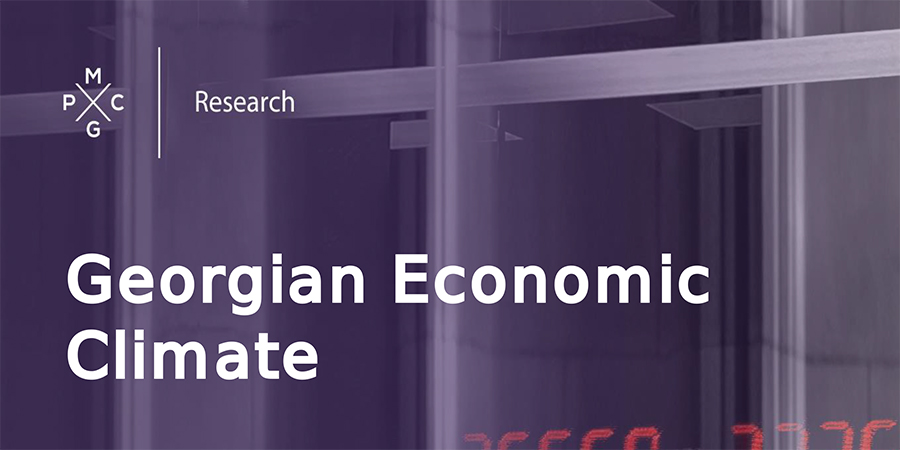
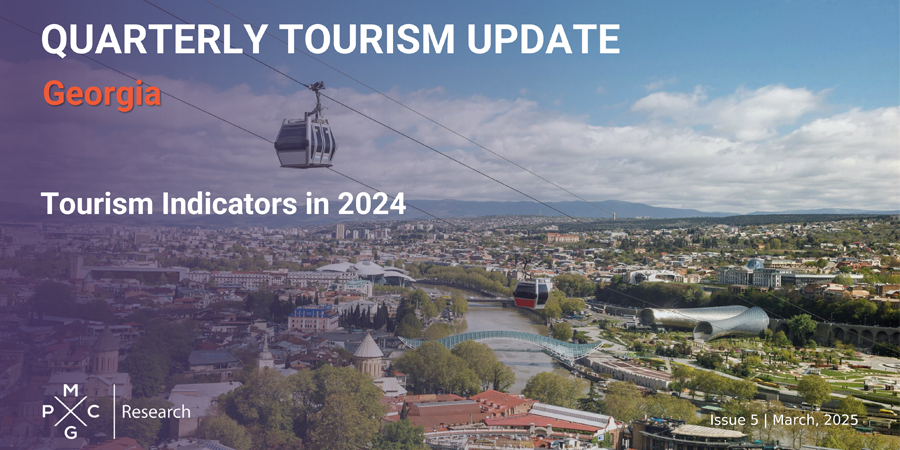
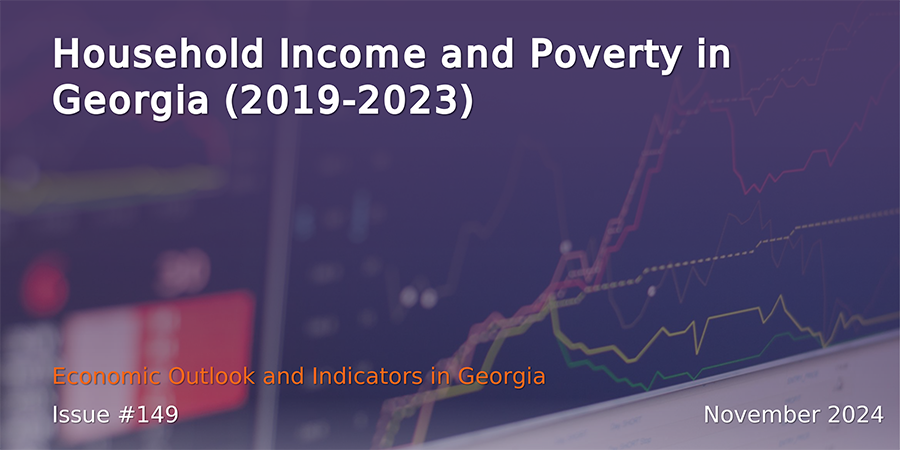
PMCG-Affiliated Researchers Author Paper in New Black Sea Geopolitics Initiative
22-May-2025
Recently a new project has been launched under the Transatlantic Leadership Network, titled “Russian Intentions and Actions in the Black Sea.” This initiative takes a deep dive into Russia’s strategic goals in the Black Sea region, the tools it uses to project influence, and what actions it may pursue during and after the war in Ukraine.
PMCG-affiliated researchers – Giorgi Khistovani, Gocha Kardava, and Irakli Sirbiladze – contributed to one of the project’s papers:“The Black Sea’s Evolving Geopolitical and Economic Role for Russia Post-Ukraine Invasion.”
This insightful analysis examines:
How Russia’s geopolitical and economic priorities in the Black Sea have shifted,
The changing trade dynamics in the region,
And how Moscow’s influence is weakening under the pressure of sanctions and the ongoing war -leading to increased reliance on regional actors like Turkey and Azerbaijan.
Re-assessing Effectiveness of Sanctions on Russia: PMC Research Shares Insights at First Georgian Economic Association Conference
22-Jul-2024
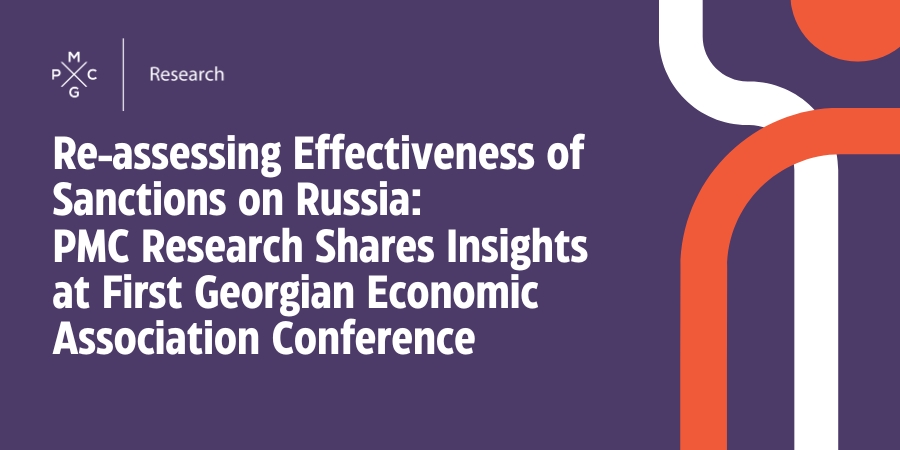
On July 2-3, PMC Research partook in the 1st International Conference of the Georgian Economic Association (GEA) in Tbilisi, Georgia.
Bringing together leading economists, policymakers, and researchers, the event provided an ideal platform to discuss the latest developments in economics, as well as to present recently completed research.
PMC Research's Director Discusses Major Migration Challenges from EU Candidate Member State Perspective
11-Jul-2024
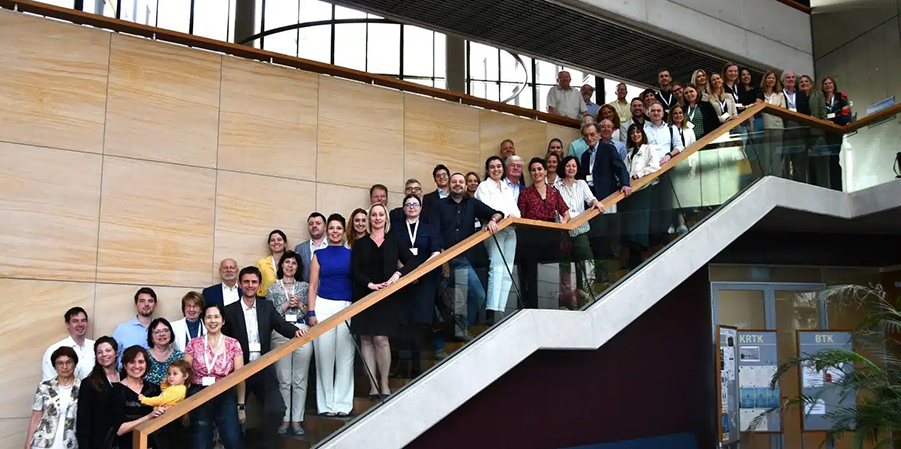
On June 13-14, PMC Research’s Dr. Giorgi Khishtovani partook in the “Changes and Challenges in the European Union” conference in Budapest, co-organized by the Trans European Policy Studies Association (TEPSA) and the HUN-REN Centre for Economics and Regional Studies – Institute of World Economics.
PMC Research Paper Analyzes Gender Disparities in Georgia’s Pension Scheme
05-Jul-2024
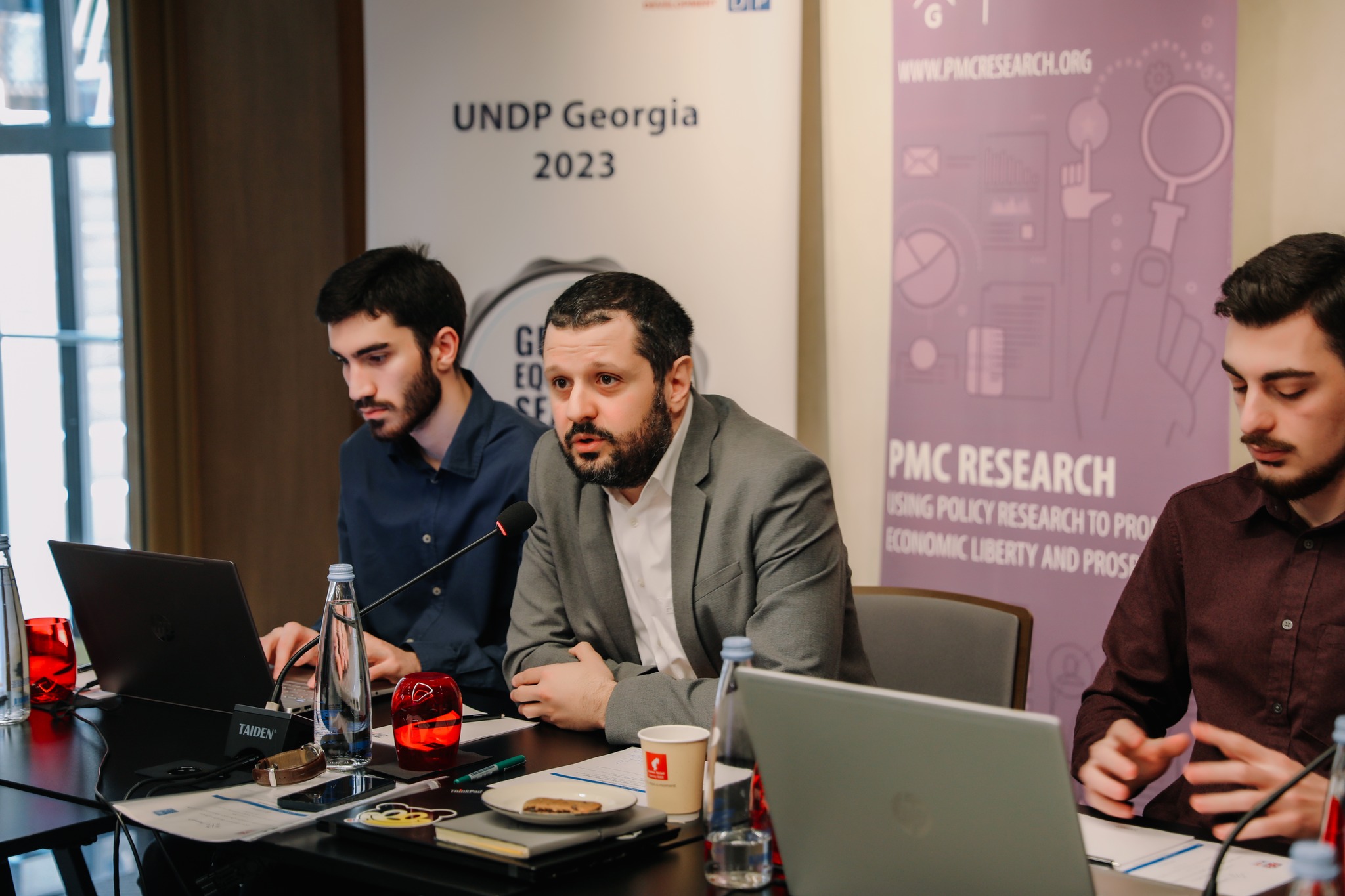
On April 3, PMC Research held a working meeting to present its "Examining Gender Disparities Within Georgia's Funded Pension Scheme: Gender Pension Gap" research paper, and gathered feedback from key stakeholders.
PMC Research Hosts “InvigoratEU: Invigorating Enlargement and Neighbourhood Policy for a Resilient Europe” Project Conference
18-Mar-2024

On 20-21 February, we hosted the “InvigoratEU: Invigorating Enlargement and Neighbourhood Policy for a Resilient Europe” project’s kick-off conference in Tbilisi, Georgia, bringing together 18 leading European research organizations, all of which are members of a consortium led by the University of Duisburg-Essen.“InvigoratEU,” a project coordinated by the EU-Chair at the University of Duisburg-Essen and the Institute of European Politics, sets out to explore how the EU ought to navigate its future relations with countries of the Eastern Partnership (EaP) and the Western Balkans.
Hotel Price Index (December, 2025)
06-Jan-2026
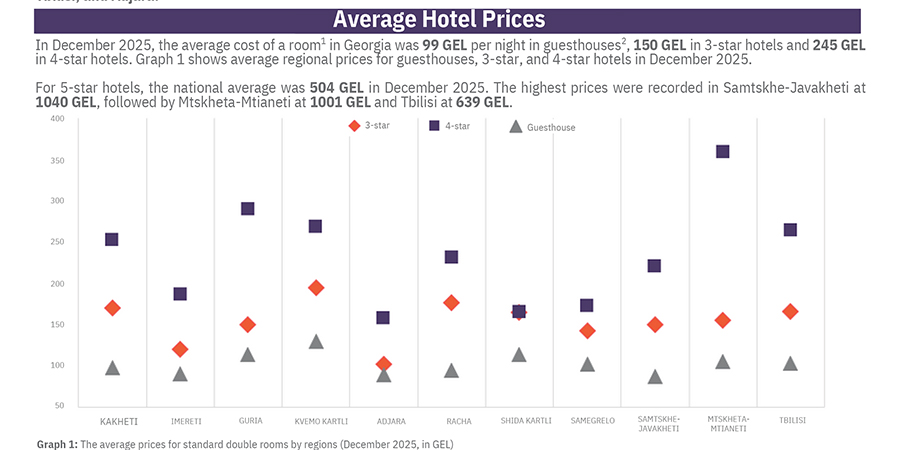
The hotel price index increased for 3-, 4-, 5-star hotels and decreased for guesthouses, both on a MoM and YoY basis.
In December 2025, hotel price index in Georgia increased by 4.3% MoM, with the largest increase in Mtskheta-Mtianeti, Samtskhe-Javakheti, Tbilisi.
In December 2025, hotel price index in Georgia increased by 3.9% YoY, with the largest increase in Samtskhe-Javakheti, Tbilisi, and Adjara.
Employment Tracker (November, 2025)
30-Dec-2025

In November 2025, the number of persons receiving a salary decreased by 0.8% month-over-month and by 1.0% year-over-year.
In November 2025, vacancies published on Jobs.ge decreased by 14.9% month-over-month, but increased by 5.0% year-over-year due to a low base effect.
From September to November 2025, the category that contributed the most to the year-over-year increase in vacancies was finance and statistics.
Hotel Price Index (November, 2025)
02-Dec-2025

In November 2025, hotel price index in Georgia decreased by 5.9% month-over-month (MoM), with the largest declines in Guria, Tbilisi, and Samtskhe-Javakheti.
In November 2025, hotel price index in Georgia decreased by 4.2% year-over-year (YoY), with the largest declines in Imereti, Kakheti, and Samegrelo-Zemo Svaneti.
The average price of a room ranged from 101 GEL to 390 GEL in November 2025.
Employment Tracker (October, 2025)
28-Nov-2025

In October 2025, the number of persons receiving a salary increased by 1.9% month-over-month and by 2.6% year-over-year.
In October 2025, vacancies published on Jobs.ge decreased month-over-month by 12.2% and by 2.1% year-over-year.
The number of vacancies in IT and programming category increased the most both year-over-year (+54.8%) and month-over-month (+5.0%) in October 2025.
In Q3 2025, compared to Q2 2025, labor market expanded, as seasonally adjusted job opening rate increased and unemployment rate decreased, while labor market efficiency remained unchanged.
Macro Overview: Issue 9
19-Nov-2025

From January to October 2025, Georgia’s economy grew by 7.6%. While YoY growth was robust, it was still below the previous year’s pace. Key growth contributors were the ICT and education sectors, accounting for 22.8% and 12.8% of growth, respectively. Services exports and other external inflows supported economic activity, with total FDI increasing by 11.0% YoY and tourism revenues rising by 5.1% YoY.
Reshaping Maritime Trade in the Black Sea: The Effects of the Russo-Ukrainian War
24-Mar-2025
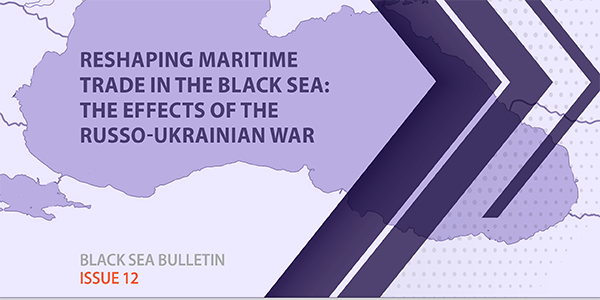
Shortly after Russia’s full-scale invasion of Ukraine in February 2022, maritime trade flows in the Black Sea were significantly reshaped. As the war continued, developments affecting the trade in the Black Sea changed, underscoring the importance of thoroughly analyzing how the region has adapted to such disruptions. This publication builds upon the previous edition, which was released shortly after the outbreak of the war. Now, three years later, our focus shifts to examining how trade dynamics, particularly maritime trade in the Black Sea region, have evolved during this period.
Key insights include:
Upon the outbreak of the Russo-Ukrainian War, port calls in Ukraine and Russia dropped sharply, while other Black Sea countries briefly benefited from redirected trade flows. By late 2023, port calls in Ukraine had gradually recovered, supported by new shipping routes through Romania and Bulgaria. However, serious threats to commercial shipping remained.
Ukraine’s maritime exports and imports fell sharply in 2022, with a slow recovery in imports in 2023. In Russia, maritime imports declined, while exports initially increased in 2022, possibly due to sanctions being ineffective. However, as the sanctions intensified, exports also fell significantly the following year.
Facilitating Trade with Central Asia: Georgia’s Role as a Transit Corridor
14-Jan-2025
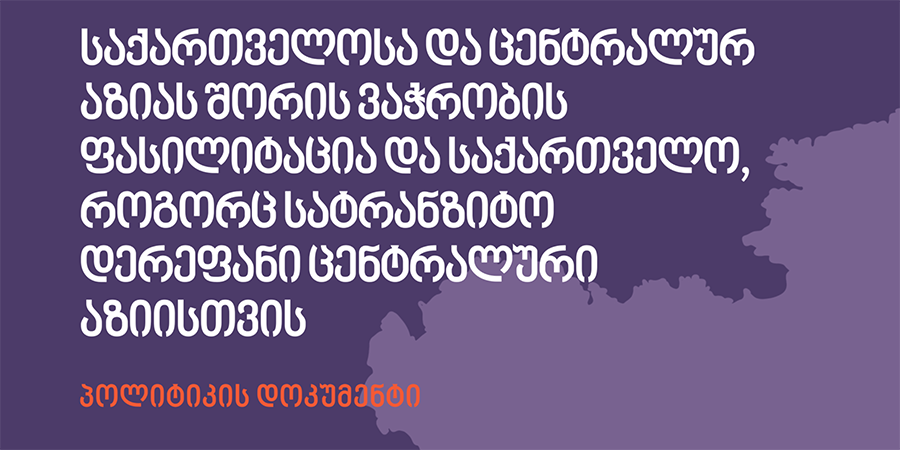
The Trans-Caspian route, widely known as the Middle Corridor, has become a vital trade link connecting Georgia and Central Asia, driven by significant geopolitical developments in recent years. The Russia-Ukraine war, which began in 2022, has been a key factor in this shift. As the Middle Corridor gains prominence, economic and political relations between Georgia and Central Asian nations, particularly Kazakhstan, have strengthened. This paper seeks to facilitate bilateral trade between Georgia and Kazakhstan by identifying new, potentially profitable products for exchange and exploring Georgia’s role as a transit corridor for Central Asia.
Innovation Ecosystems In Black Sea Countries
18-Jul-2024
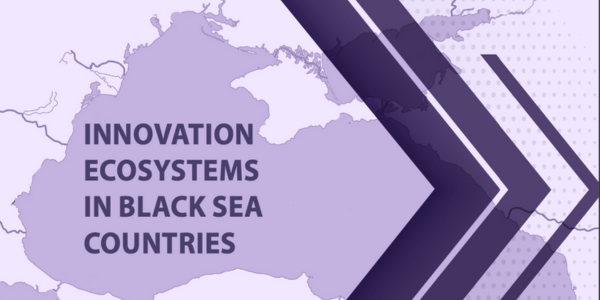
In an attempt to keep pace with advancements in technology and globalization more broadly, Black Sea countries have been intensifying their efforts to foster and cultivate their own innovation ecosystems.
Taking Stock Of Greening In The Georgian Financial System
18-Jul-2024
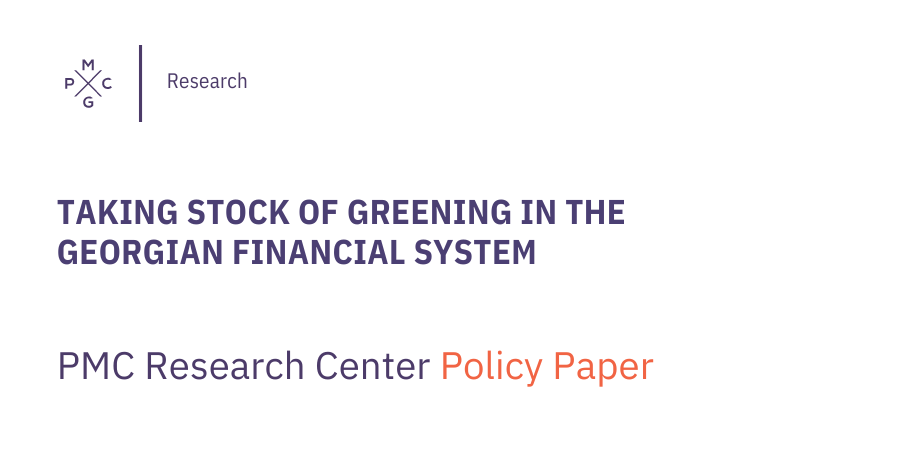
Green finance holds great importance today when it comes to combating climate change and achieving sustainability goals by directing investments towards environmentally friendly projects. This approach promotes energy efficiency, clean transportation, and sustainable agriculture, while also mitigating greenhouse gas emissions and fostering economic growth. Ultimately, by integrating environmental considerations into financial decisions, green finance ensures a more sustainable and resilient global economy.
Gender Pension Gap in Georgia: Gender Disparities within Georgia’s Funded Pension Scheme
26-Jun-2024
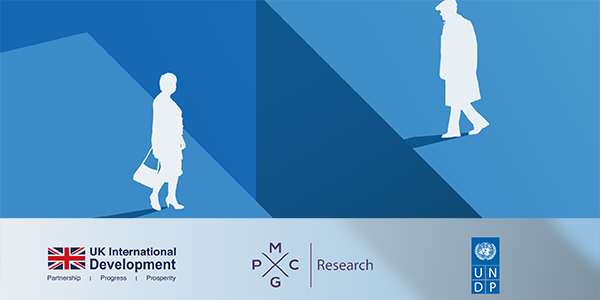
The research study analyses the gender aspects of Georgia's accumulated pension system and assesses the potential gender disparity in pensions between women and men.
- Periodic Issues
- ECONOMIC OUTLOOK AND INDICATORS IN GEORGIA
- HOTEL PRICE INDEX
- PMC RESEARCH - IFO GEORGIAN ECONOMIC CLIMATE
- BLACK SEA BULLETIN
- QUARTERLY TOURISM UPDATE
- ECONOMIC OUTLOOK AND INDICATORS IN UKRAINE
- SECTOR SNAPSHOTS
- EMPLOYMENT TRACKER
- MACRO OVERVIEW
- BAG Index
- Profile Of Bilateral Relations


